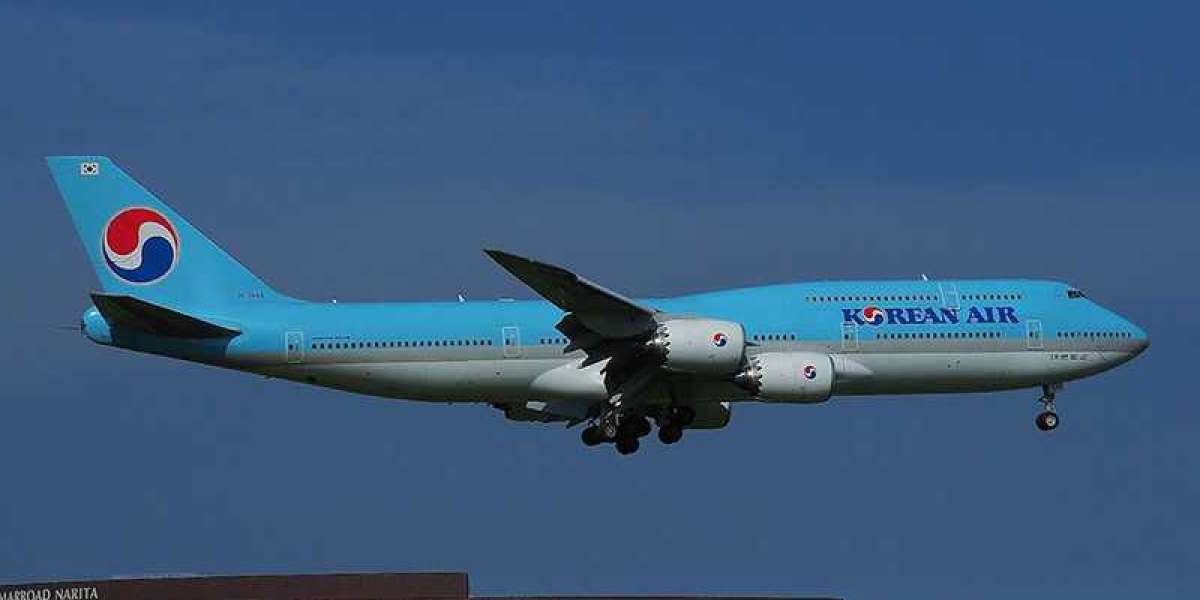The Boeing 747-8 represents the latest evolution of the iconic 747 series. As a large airplane model, it combines advanced technology with the timeless design of its predecessors. Known for its enhanced efficiency, extended range, and improved passenger experience, the 747-8 is a testament to Boeing's commitment to innovation and excellence in aviation.
Large Airplane Model’s Design and Development
The Boeing 747-8 was developed as an advanced version of the 747-400, incorporating new technologies and design improvements to meet modern aviation demands. This large airplane model features a stretched fuselage, making it the longest commercial aircraft in the world. The extended length allows for more passenger and cargo capacity, addressing the needs of airlines for higher efficiency and profitability.
The 747-8 incorporates state-of-the-art aerodynamics and advanced materials, including a new wing design that enhances fuel efficiency and reduces noise. The aircraft is powered by GEnx-2B67 engines, which provide greater thrust and better fuel economy compared to previous models. These engines also contribute to lower emissions, making the 747-8 an environmentally friendly choice for long-haul travel.
Performance and Range
The Boeing 747-8 offers exceptional performance, with a maximum range of approximately 7,730 nautical miles. This allows it to connect distant cities with non-stop flights, making it ideal for international routes. The aircraft can cruise at speeds of around 570 knots, ensuring timely and efficient travel for passengers and cargo alike.
The 747-8's advanced wing design and powerful engines enable it to achieve better fuel efficiency, reducing operational costs for airlines. The aircraft also features improved aerodynamics, which enhance stability and reduce turbulence, providing a smoother ride for passengers.
Luxury and Comfort
The interior of the Boeing 747-8 is designed to provide an unparalleled level of luxury and comfort. The spacious cabin allows for innovative seating arrangements, offering more personal space and amenities. The aircraft can accommodate up to 467 passengers in a typical three-class configuration, with first-class suites, business-class lie-flat seats, and comfortable economy seating.
The 747-8 features larger windows, improved lighting, and advanced in-flight entertainment systems. The quiet and spacious cabin enhances the overall travel experience, making long flights more enjoyable. The aircraft's design also includes modern galleys and lavatories, ensuring convenience and comfort for passengers throughout their journey.
Versatility and Usage
The Boeing 747-8 is available in two main variants: the 747-8 Intercontinental (passenger version) and the 747-8 Freighter (cargo version). The 747-8 Freighter is particularly notable for its ability to carry large and heavy cargo over long distances, making it a key asset in global logistics and supply chains.
The passenger version of the 747-8 is used by major airlines for long-haul routes, connecting major international hubs and providing a luxurious travel experience. The aircraft's range and capacity make it suitable for high-demand routes, offering airlines flexibility and efficiency.
Legacy and Impact
The Boeing 747-8 continues the legacy of the 747 series, building on its reputation as a reliable and innovative aircraft. It has set new standards for efficiency and passenger comfort in the long-haul market. The 747-8's introduction has influenced the design and development of future large airplane models, pushing the boundaries of what is possible in commercial aviation.
Despite the emergence of newer aircraft models, the 747-8 remains a vital part of many airlines' fleets. Its ability to combine capacity, range, and efficiency ensures its continued relevance in a competitive industry. The Boeing 747-8 exemplifies the enduring appeal and advanced engineering of the 747 family.
FAQs
1. What makes the Boeing 747-8 different from previous 747 models?
The 747-8 features a stretched fuselage, new wing design, and advanced GEnx-2B67 engines, providing better fuel efficiency, increased capacity, and improved performance compared to earlier models.
2. How far can the Boeing 747-8 fly without refueling?
The Boeing 747-8 has a maximum range of approximately 7,730 nautical miles, allowing it to fly non-stop on long-haul routes like New York to Hong Kong or London to Sydney.
3. How many passengers can the Boeing 747-8 accommodate?
The 747-8 can accommodate up to 467 passengers in a typical three-class configuration, offering a mix of first-class, business-class, and economy seating.
4. What are the main uses of the Boeing 747-8?
The 747-8 is used for long-haul passenger flights and cargo transport. Its freighter variant is essential for global logistics, while the passenger version serves major international routes.
5. Is the Boeing 747-8 still in production?
Yes, the Boeing 747-8 is still in production, though Boeing announced it will cease production in 2023. It remains an important aircraft for many airlines and cargo operators.
6. What improvements does the Boeing 747-8 offer over earlier models?
The 747-8 offers better fuel efficiency, increased passenger and cargo capacity, enhanced aerodynamics, and advanced avionics, making it a more modern and efficient aircraft.
Conclusion
The Boeing 747-8 is more than just a large airplane model; it represents the pinnacle of modern aviation technology. With its advanced design, impressive range, and luxurious comfort, the 747-8 continues to set standards in the industry. Its legacy of innovation and performance ensures that it remains a key player in the world of long-haul travel.
In a rapidly evolving aviation landscape, the 747-8 stands out for its ability to adapt and excel. Whether for passenger transport or cargo operations, this aircraft model exemplifies the best of what aviation technology has to offer. As the aviation industry continues to evolve, the Boeing 747-8's influence and legacy will undoubtedly endure.














